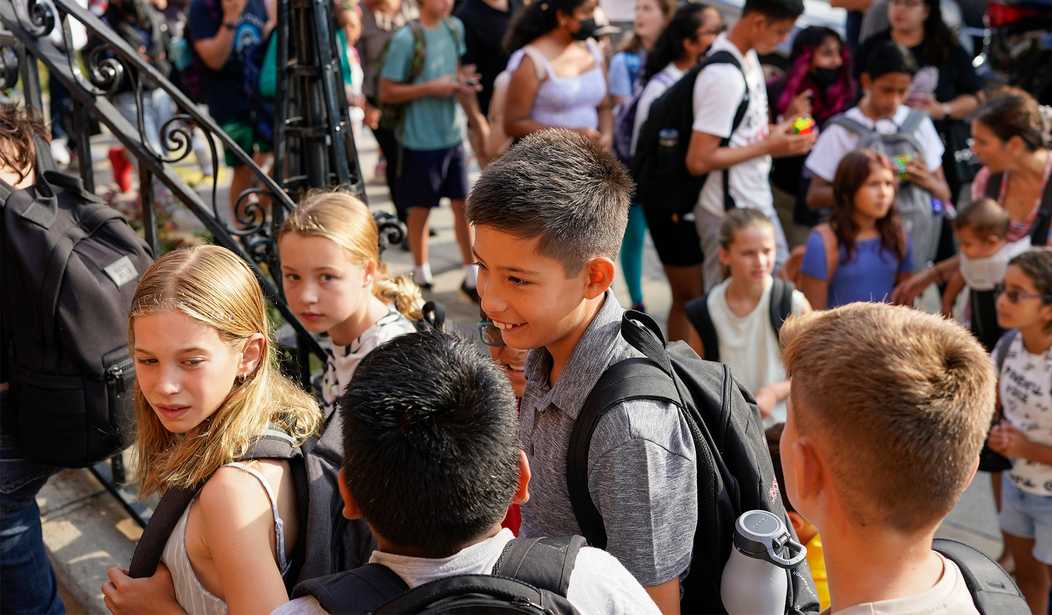Attending public school in Atlanta, the unavoidable sensation often crept into my young psyche that I was incarcerated in a government institution for some sort of crime I wasn’t aware I had committed.
The daily experience was one of students largely disinterested in the concept of education (a condition inherited from their parents), a faculty either apathetic from the jump or else formerly idealistic but beaten down to the point of giving up, and fatally cynical and callous administrators just trying to collect their bloated paychecks without getting stabbed in the cafeteria during a fistfight.
I vividly remember my deer-in-the-headlights first-year Spanish teacher, fresh out of the academy, crying on a near-daily basis as she tried to manage her feral charges, unhelped in any meaningful way by the administration.
My sister, a former teacher at a public school in Kansas, recently quit after one of her students threatened to do a Columbine, including targeting her specifically, received a half-week suspension, and was back at school a few days later as if nothing had happened.
Stories like this are legion. Ask anyone who’s attended or taught at these institutions.
So you’re gonna be institutionalized
You’ll come out brainwashed with bloodshot eyes
You won’t have any say
They’ll brainwash you until you see their wayI’m not crazy – institution
You’re the one who’s crazy – institution
You’re driving me crazy – institution
They stuck me in an institution
Said it was the only solution
– Suicidal Tendencies, “Institutionalized”
Accordingly, I have often wondered how much worse COVID-19 made things in the already-failing U.S. public school system.
Charles Krblich has some possible answers in that regard.
Via Brownstone Institute (emphasis added):
In March 2020, the world changed. The entire school experience became a series of apps on a screen. Classes met daily in the morning on Zoom. All of the curriculum was hastily added to Schoology during the initial two-week lockdown. I still want to call it School – ology. We became intimate partners with the printer and scanner. They were necessary to scan and upload completed assignments.
The initial two-week closure was extended to the end of April. With only one more month of school after that, the district remained shuttered for the rest of that year. School would remain a computer screen.
There was a tremendous amount of uncertainty. We didn’t know how the grades would work. We didn’t know when the school would reopen. We didn’t quite understand how to find and complete the assignments. The assignments were exceptionally basic and shoddily organized. We were skeptical that we were uploading them correctly. We were not teachers. We did not expect to be teachers. We had full-time jobs.
My experience with Zoom School was so utterly terrible that I was convinced the children had to be back in school. We lived in Florida, and we were lucky the schools reopened in August the next year. Our Governor had to fight our district to open. Striking back, the district delayed the opening as long as legally possible.
To my great regret, the strength of my belief led me to send my children into a classroom that had plastic dividers between the desks and masks covering all the faces. I was still naïve enough to believe that people wanted this over as soon as possible and would act rationally. I was already wrong, but I couldn’t see it yet.
The few pleas for normalcy fell on the deaf ears of our school board. I could not understand it, but they seemed to actually enjoy it. Every time a mandate could be extended, it was. Despite strong opposition, the decisions were often unanimous.”
The reason, of course, that schools remained closed as long as they did, even in otherwise red states, is the corrupt teachers’ unions that will use any excuse available to allow their lazy members to not work yet still collect full pay.
Related: Teachers’ Union Head Randi Weingarten KO’ed in Congressional Hearings Over COVID School Closures
Continuing:
I finally accepted reality. I spoke with the founder of an Umbrella School, a way of homeschooling. She was fabulous. She had homeschooled her own children and was a respectable psychologist…
The homeschool curriculum was marvelous. The books on history and science were what I remember from school. The readers had heroic stories with moral themes in them. The math book was the best I have ever seen. The English book included sentence diagramming that I had to relearn myself. There was handwriting, cursive, art, and long-form creative writing.
This one parent’s experience appears to not be an outlier; trends analysis shows that more and more are looking at alternative education arrangements beyond public school.










